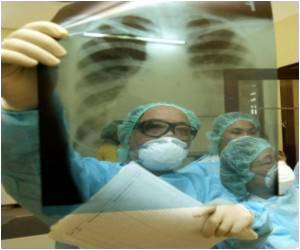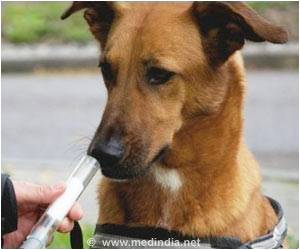Technique to examine circulating tumour cells in the blood of patients with non-small cell lung cancer has been devised by researchers.

Erickson presented the findings at the AACR-IASLC Joint Conference on Molecular Origins of Lung Cancer: Biology, Therapy and Personalized Medicine, held Jan. 8-11, 2012.
Even though researchers have found that the presence of CTCs in the blood of patients with lung cancer is associated with short survival, clinicians have had no way to analyze the actual CTCs because their levels were so small.
In this study, Erickson and colleagues showed the effectiveness of using high-throughput matrix-assisted laser desorption/ionization time-of-flight mass spectrometry single nucleotide polymorphism analysis (MALDI-TOF MS SNP) — an extremely sensitive analysis using a mass spectrometer — to analyze and determine the exact genetic mutations present in DNA from a few malignant cells that can be applied to CTC samples.
Identifying these mutations would allow clinicians to track progress of genetic changes and thus monitor the cancer and the effectiveness of any treatments being administered. It could also enable researchers to identify ways in which the cancer develops and possibly identify new therapy targets. This analysis method also benefits the patient in the way samples are taken.
"By being able to collect a blood sample from a patient instead of having to do a biopsy, we'll have an opportunity to monitor the patient throughout treatment in an easier way," said Erickson.
Advertisement
Collection and purification methods of CTC samples are not yet perfected. When they are, the researchers will test samples from actual patients with lung cancer, Erickson said.
Advertisement















